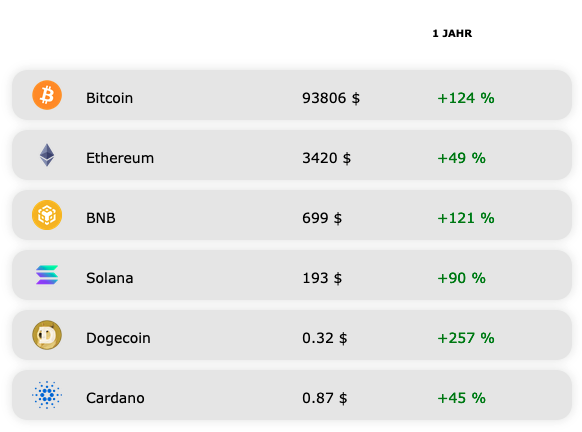✨ AI Kontextualisierung
In times like these, both companies and the education sector face new challenges. It is essential now to react more and more flexibly and agilely to new developments. At the moment we all feel how fast our environment is changing and how quickly we have to react to it in order to survive.
Entrepreneurship is an essential tool to be able to react successfully. Because it does not mean inventing something new or managing the company in difficult times – it means much more to recognize market opportunities, find solutions and implement them successfully.
Just as companies react to new circumstances, educational institutions must constantly adapt and create new learning concepts and content to equip students with the right skills. Edupreneurship describes this process of driving change and developing new learning programs to best meet the challenges of our time.
Corship: An EU-project for Co-Innovation
The concept of “Corporate Edupreneurship” is also the core of the EU project Corship, in which co-innovation between established companies and startups is supported with innovative training formats. The knowledge alliance is funded by the EU and brings together seven industry and research partners: FH Joanneum (AT; coordinator), AVL List GmbH (AT), Cracow University of Economics (PL), Hasso Plattner Institute (DE), BETA-I Incubator (PT) and European Startup Network (BE).
The core element is a free Massive Open Online Course (MOOC), which brings together over 1500 entrepreneurs, managers and students online to learn about the potential, challenges and opportunities for cooperation. The next MOOC starts already on April 22, 2020, and free registration is available under this link.
Toolbox and MasterClass as parts of Corship
A specially developed “toolbox” facilitates matchmatching and cooperation between the participants. The “Co-Innovation Builder” is at the centre of the toolbox: This is a kind of business model canvas for collaboration, which is used in the MOOC.
Additonally, the Co-Innovation MasterClass offers 30 startups, managers and students the opportunity to deepen their knowledge and work together on Co-Innovation Challenges in two Innovation Bootcamps in Berlin and Krakow. The Co-Innovation MasterClass will take place in 2021, you can apply for a place via the MOOC .
“With Corship we want to show new ways of connecting key players of the start-up ecosystem through innovative training approaches in order to exploit the full potential of co-innovation,” says Christian Friedl, Coordinator and Senior Lecturer at FH JOANNEUM.
The project partner AVL List GmbH has been working with innovative startups as part of the Startup Initiative Creators Expedition since 2017 and can therefore contribute valuable experience and learning.
TECC: FH JOANNEUM cooperates with companies
Another example of Edupreneurship, in which Styrian companies and FH JOANNEUM have joined forces to develop a new learning format is TECC (Training On Entrepreneurship & Company Creation).
The Institute for International Management at FH JOANNEUM, together with its partners AVL List, Raiffeisenlandesbank Steiermark and 360Lab, launched the project “TECC – Training for Enterprise and Company Creation” at the beginning of March 2020. The aim of the project is to enable students to develop creative ideas on an interdisciplinary, hands-on basis and to take them through to maturity in a 2-semester applied training programme. Students from different courses of study at the FH Joanneum Graz are admitted to this project. The programme offers a mixture of teaching, seminars, company visits and pitching sessions.
“At TECC not only students learn from the partner organisations. Through close cooperation with the student teams, we also learn for our activities at Raiffeisen TATEN-Bank. We learn where startup customers need support from a bank at an early stage and where we should dive deeper into the startup business in the future,” says Martina Hölzl, Startups & Digitalization, Raiffeisen-Landesbank Steiermark AG.
TACC: Training for entrepreneurship in the automotive industry
AVL List has already been able to gain experience in this area, as TACC (Training for Automotive Companies Creation) was already developed in 2018.
TACC is also a new training concept with a focus on entrepreneurship – but with a specialization on the automotive industry. With a strong technological component, TACC offers orientation in the rapidly changing automotive industry – a course for those who want to understand, study and explore the world of entrepreneurship and innovation in the automotive industry. For this purpose AVL cooperates with the University of Modena UNIMORE and regional partners of the Automotive Innovation Hub. The output after two semesters is a business case for starting your own startup.
“With TACC we want to promote the entrepreneurial spirit of young people by creating a link between universities, incubation centres and companies. As part of the Automotive Innovation Hub, the initiative enables us to respond optimally to trends in the automotive sector”, says Marta Pellegrino, Program Coordinator TACC.
The target group of this program are motivated students who want to start their own business and acquire the necessary skills. The program includes classes with the participation of experienced managers, participation in national and international trade fairs, workshops, company visits, complementary seminars, prototyping, and design and validation sessions for the planned startup project.
Further information about TACC can be found via this link.
“With programs such as TACC and TECC, we not only want to support the founding process of new startups, but also want to give students the entrepreneurial mindset that we consider essential in today’s working world. It is not only about developing their own ideas, but also about the skills to implement these ideas,” concludes Viktoria Ilger, Creators Expedition AVL Startup Initiative, summing up the programs.






